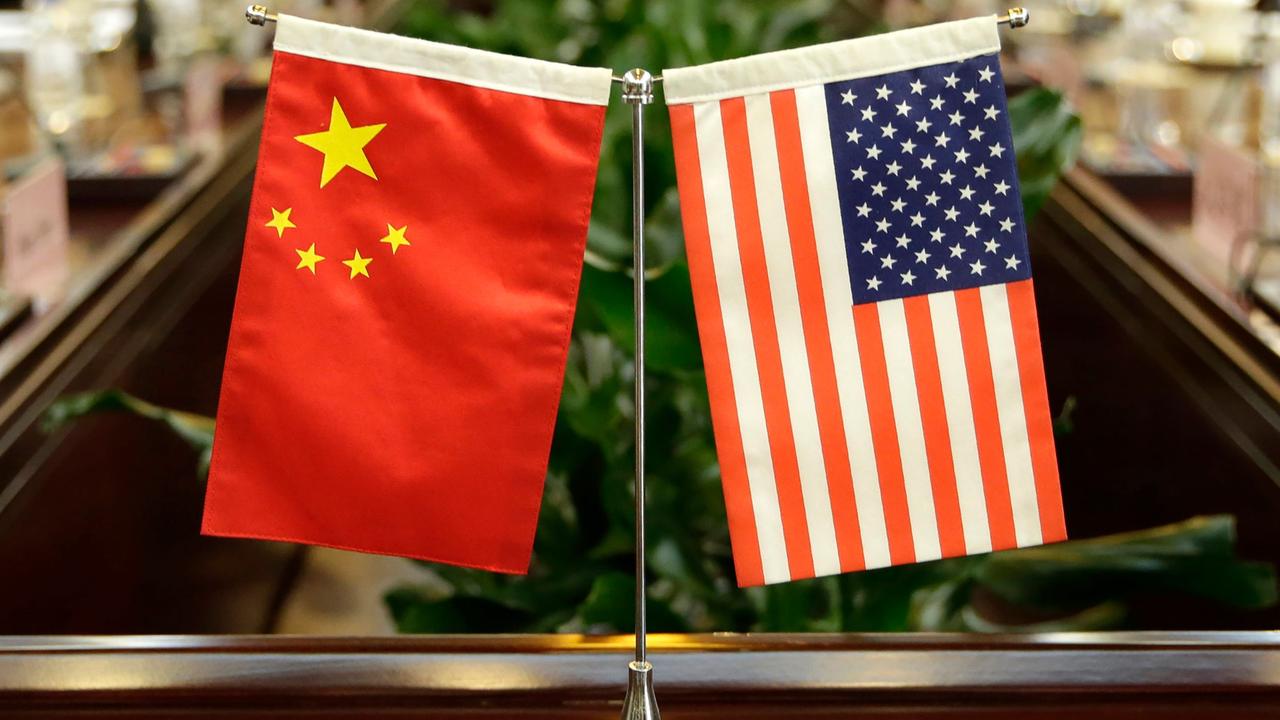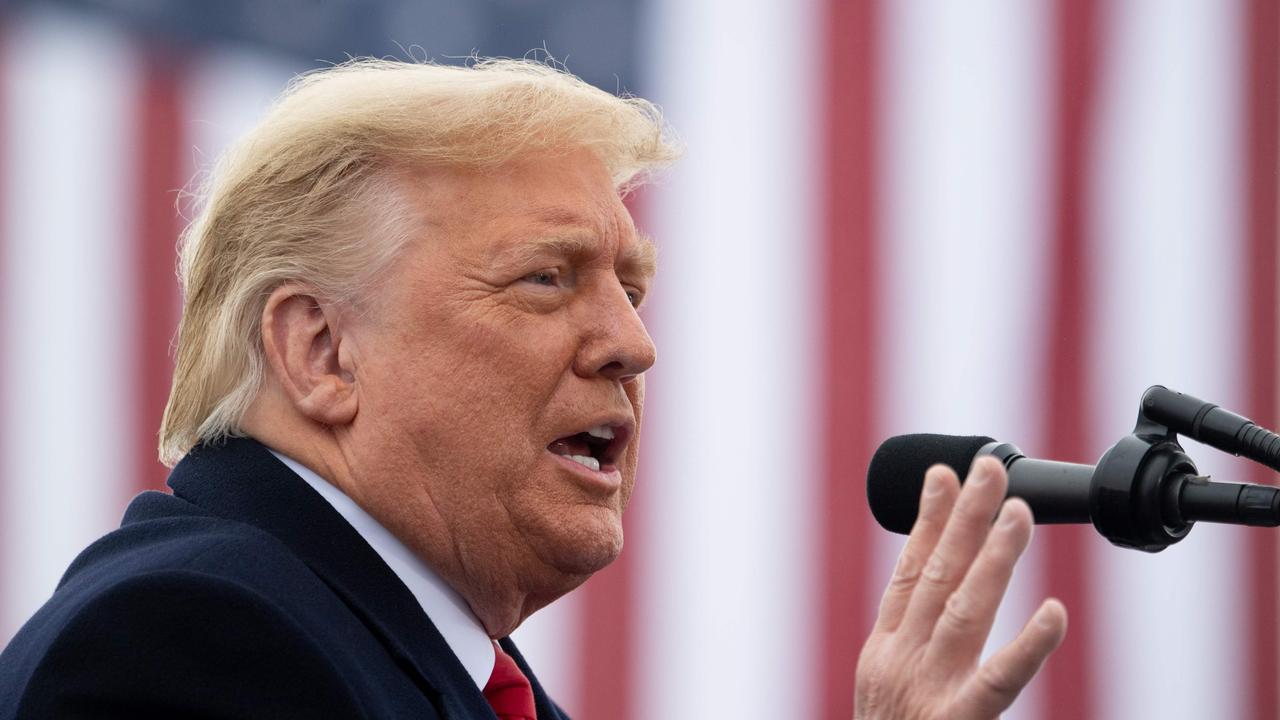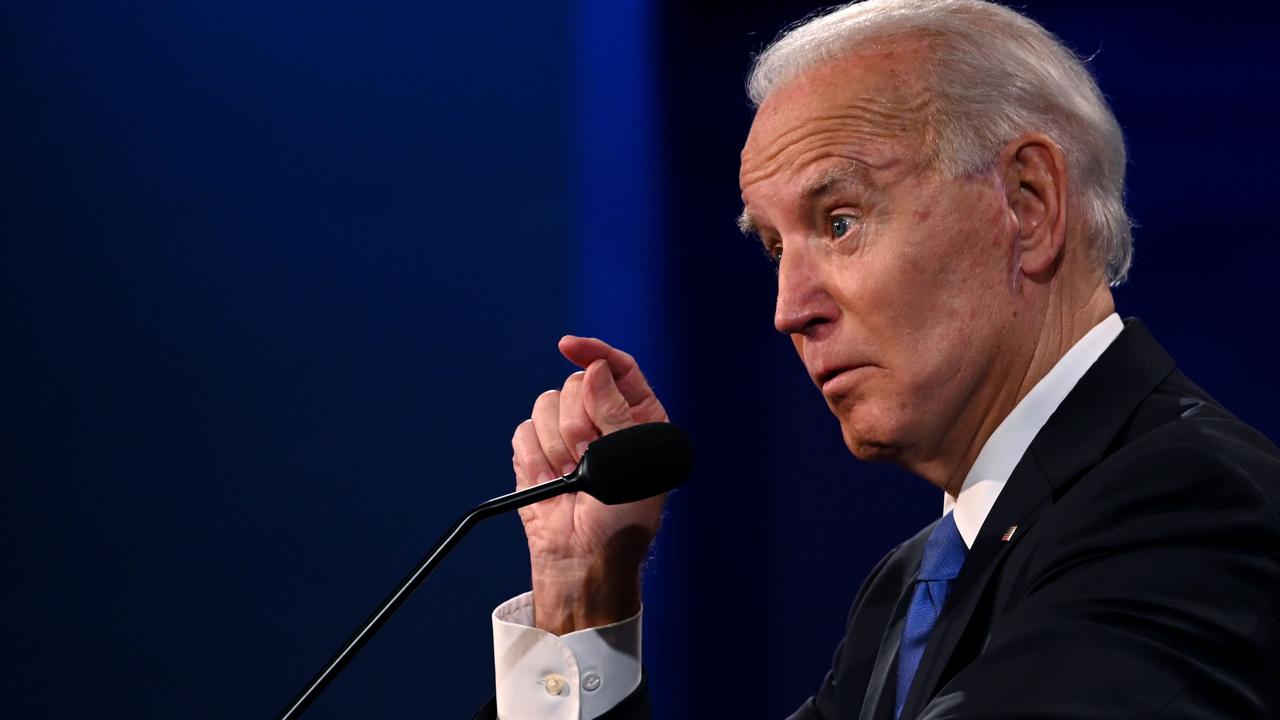‘High anxiety’: What the US election means for Australia
Australia is watching the US election with bated breath as one crucial difference between the candidates could affect our lives more than any other.
While a lot has been written about the US presidential election in the Australian media – looking at the two candidates, their ideas, flaws and questionable debating styles – there is one aspect of next week’s vote that will affect our lives more than any other.
It is the crucial difference between Donald Trump and Joe Biden when it comes to their economic approach to our biggest trading partner and closest superpower, China, that is giving our leaders restless nights.
The past four years under Donald Trump has resulted in an increasingly hostile relationship between Australia and Beijing, with the Chinese Communist Party imposing damaging tariffs on our goods, warning its citizens of how racist we are and attacking our government on an almost daily basis through its state media.
Now, with the wildly polarised foreign policy positions of both presidential candidates it appears we are at a critical juncture in our relationship with China.
RELATED: Wine sales increase before tariffs begin
RELATED: China’s incredible response to Kashgar virus cases

As a trade war between the US and China continues and Beijing threatens to inflict even more economic harm on Australia, the way Americans vote in less than one week’s time could have significant ramifications on our attempts to claw a way out of our coronavirus-induced recession over the next four years.
Overnight, a new study has revealed just how different Australia’s future could be under Trump or Biden, as the candidates duke it out over how they are going to handle China.
In it, Dr John Lee from the University of Sydney has broken down the crucial differences in their approaches and what it means for us.
He said no matter who takes charge of the US, they will want to exert economic pressure on China and achieve greater ‘economic distance’ on American rather than Chinese terms.
However, the key difference between Trump and Biden is the Republican won’t necessarily wait for other nations to back him up and will “go it alone in many circumstances”.
By contrast he said Democratic Biden will want the world to back up by trying to build up support from as broad a group of advanced economies as possible.
WHAT WOULD HAPPEN UNDER TRUMP?
In the study, Dr Lee said that, if Trump wins, he will essentially double down on his aggressive economic approach to China.
The policies that have fuelled economic warfare between the superpowers will, he said, “undoubtedly accelerate in scope and depth under a second Trump term”.
“The weaponisation of market access, capital denial, technology/know-how denial and even restrictions on US dollar transactions by Chinese entities will be expanded,” he said.
He said this is a double-edged sword for Australia, with potential benefits and risks.
“Although Canberra agrees with many of the economic accusations levelled against China and the need for the United States to lead measures against Beijing’s activities, Trump’s approach generates high anxiety,” he said.
RELATED: Tiny island China desperately wants
RELATED: Neutral countries hit back at “wolf warrior” tactics

The anxiety, he said, stems from the fact that Trump’s economic weapons and other forms of economic retaliation against China have been used with minimal consultation of or warning given to other countries like Australia, which are greatly impacted by the decisions.
“Similarly, Australia is largely in the dark about the intended pace and nature of escalation,” he said.
He America’s economic punishment of and retaliation against China is seen largely as a bilateral issue to achieve a better outcome for the United States and that little thought is given to the impact on other nations in the region like Australia.
Another author in the study, Dr Charles Edel said if Trump is elected again he “will become more unilateral in his actions and less constrained in his impulses”.
To combat these issues, Dr Lee said Australia should try to bolster its diplomat access in Washington D.C. and strengthen its economic intelligence – which he said could give Canberra the opportunity to push for desirable outcomes that the Trump administration could agree with.
“Australia should suggest economic offensive policies that have less market or price distorting effects, thereby lowering the unintended or collateral damage to other economies,” he said.
WHAT WOULD HAPPEN UNDER BIDEN?
In stark contrast to a Trump administration, Dr Edel said a Biden administration would work to place allies and partners at the centre of US foreign policy – which he said Australia would welcome.
“A Biden administration will be far more consistent and collectively minded in working with US allies and partners, with the restoration of the ‘liberal international order’ a likely hallmark of Biden foreign policy,” he said.
“This will be welcomed by Australia and other Indo-Pacific nations that are increasingly alarmed by President Trump’s aggressive transactionalism.
RELATED: China steps up military drills in South China Sea
RELATED: Who does China want to win US election?

“A Biden administration will not mean an end – or even a decline – to US efforts to boost burden-sharing by allies and partners. But Biden and his team are likely to bring a greater willingness to accommodate differences in interests, threat perceptions and contributions to collective action than has recently been the case.”
Dr Lee said that, if Biden wins, Australia should get in early to suggest approaches that have sensible institutional landing points, and which serve Australian interests and those of those economies that largely abide by international rules.
“Regardless of who wins the election, the United States needs to reassert institutional and collective leadership,” he said.
“The key for Australia is not merely to participate in institutions but to compete through them and reshape them in accordance to Australian interests and values where possible.”
Read the full report, called Red Book/Blue Book: An Australian guide to the next US administration, online.




